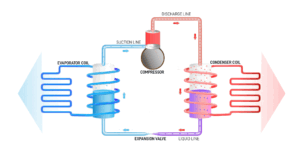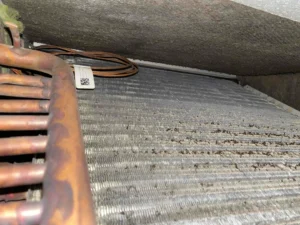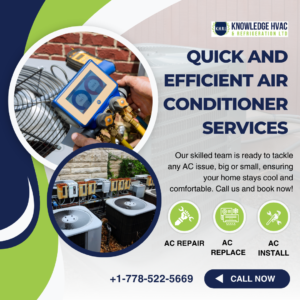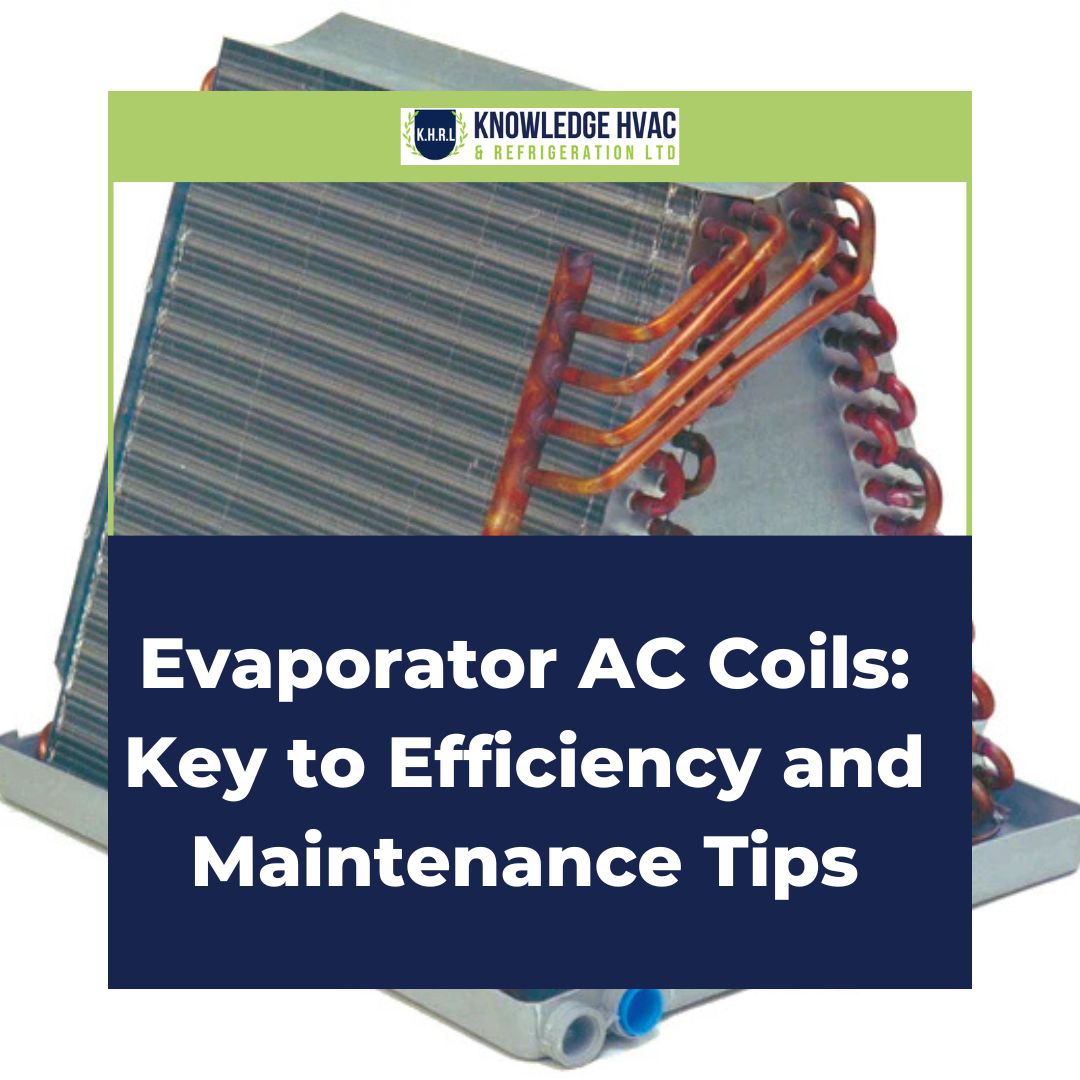No one wants an air conditioner that won’t turn on, and it’s even worse when it blows warm air on a hot summer day. To avoid this, it’s crucial to keep your air conditioner’s evaporator coil in top condition, preferably with the help of our professional HVAC technician.
The evaporator coil plays a crucial role in your AC system. It absorbs heat from inside your home and works with the outdoor unit to transfer the heat outside, hence, cooling your home.
If the evaporator AC coil is damaged, your home won’t cool down as it should. Understanding how it functions and how to maintain it can help you avoid the discomfort of a failing air conditioner during the summer months.
How does an evaporator AC coil work?

To understand the evaporator AC coil, you need to know how air conditioners work:
- Air conditioners don’t just make cold air. They take the heat out of your indoor air.
- The system moves this heat to the outside of your home.
- A special refrigerant liquid flows through the air conditioner system to carry the heat.
- This process continues until your home reaches the temperature you desire.
AC coils are usually made of copper or aluminum because these metals transfer heat very well. As the refrigerant flows through the coil, it absorbs heat. This heat then moves through the air conditioner and is released outside through the condenser coils. As this keeps happening, cool air spreads through your home.
With proper care, most evaporator coils should last 10 to 15 years.
Common Issues with Evaporator Coil
A licensed HVAC technician from Knowledge HVAC & Refrigeration can always inspect your evaporator coils for problems. NOTE: Refrain from trying to inspect or maintain them yourself.
- Dust Buildup: Dust and dirt can clog the evaporator AC coil, if air filters aren’t replaced regularly. This makes the coil-less efficient by acting as an insulator, forcing the system to work harder, use more energy, and increase the likelihood of future problems.
- Frosting Over: A dirty coil can cause the refrigerant to freeze instead of cooling correctly, leading to a frosted coil. Running the AC with a frosted coil prevents proper heat absorption and can lead to system failure.
- Leaks: Condensation and chemicals can create small leaks in the coil. Oily residue near the coil is a sign of a leak and requires immediate attention from an HVAC contractor.
How to Detect a Faulty AC Coil: Warning Signs and Solutions
Look out for these signs that may indicate your evaporator coil needs inspection by an HVAC technician:
- Your AC won’t turn on
- Warm air comes from indoor vents
- The unit starts and stops without cooling properly
- Unusual noises (hissing or banging) from the unit
- Visible refrigerant leaks near the indoor cooling part
Caution: AC refrigerant is dangerous. Please do not touch it. Keep children and pets away from leaks. Always call one of our licensed HVAC expert for AC problems.
If you notice these issues, contact Knowledge HVAC & Refrigeration to have your evaporator AC coil checked and possibly cleaned or replaced.
The Importance of Proper AC Coil Maintenance
Remember: Your air conditioner is a high-voltage device. Touching internal parts can cause severe injury or death. Always call one of our licensed HVAC expert for AC problems.
For best results:
- Have a professional clean and maintain your evaporator coils during regular AC system maintenance.
- Change air filters regularly.
- Ensure an HVAC contractor checks and maintains refrigerant levels.
- Report any unusual sights, sounds, or feelings from your AC system promptly.
The importance of professional maintenance:
- Schedule regular HVAC check-ups
- Let professionals handle internal components, including evaporator coils
- Very dirty coils may need special cleaning with chemicals or power washing
- HVAC experts have the training and equipment to safely clean your AC unit and its parts
Following these guidelines will help ensure your AC system runs efficiently and effectively.
Why Is Cleaning AC Coil Important?

AC coils can collect dirt, dust, and debris over time due to their close spacing and the airflow moving across them during the cooling process. This buildup limits the system’s ability to transfer heat, reducing its cooling efficiency.
Dirty coils can severely block airflow, reducing comfort and increasing energy bills. Additionally, the system will have to work harder, shortening its lifespan and may lead to costly repairs. Put, cleaner coils mean a more efficient AC system.
Why Is Cleaning AC Coil Important?
Dirt and debris force fans and compressors to work harder, increasing the system’s operating temperature.
Your AC helps with humidity control, However, a dirt evaporator will lower system efficiency, causing higher indoor humidity and less comfort.
When coils are covered in dirt, they can’t absorb or release heat as effectively, making the system less efficient.
A less efficient system will drive up your utility bills as it needs to maintain a cool environment.
A blocked evaporator coil stresses the compressor, leading to higher operating temperatures and straining the entire system. Since the compressor is one of the most expensive parts to replace, maintaining the coil helps prevent costly repairs.
Overworked components due to dirty coils can result in system breakdowns, leading to service calls, repairs, or even the need for a full system replacement.
Schedule Professional AC Maintenance to Protect Your Coils

Understanding these coils’ role can help you make smart choices to maintain your AC system’s performance. So, the next time you enjoy cool air from your AC, remember the crucial work of these coils. Schedule a professional maintenance at Knowledge HVAC & Refrigeration to protect them from damage and inefficiency, ensuring you stay cool all summer.


